Haiti’s Prime Minister Ariel Henry has agreed to resign following weeks of mounting pressure and increasing violence in the impoverished country.
It comes after regional leaders met in Jamaica on Monday to discuss a political transition in Haiti.
Mr Henry is currently stranded in Puerto Rico after being prevented by armed gangs from returning home.
In a video address announcing his resignation, Mr Henry urged Haitians to remain calm.
“The government that I am leading will resign immediately after the installation of [a transition] council,” Mr Henry said.
“I want to thank the Haitian people for the opportunity I had been granted. I’m asking all Haitians to remain calm and do everything they can for peace and stability to come back as fast as possible.”
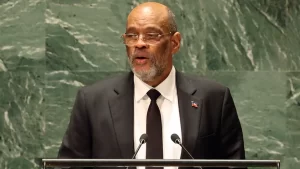
The rise and fall of Haiti’s Ariel Henry
Mr Henry, who had led the country supposedly on an interim basis since July 2021 following former President Jovenel Moïse’s assassination, had repeatedly postponed elections, saying security must be restored first.
Many Haitians had questioned him governing the country for this long without an elected president.
Heavily armed gangs have tightened their grip on the streets of the capital Port-au-Prince, and attacked the main prison to help thousands of inmates escape.
They also demanded the resignation of the unelected prime minister.
The capital Port-au-Prince and the surrounding region is under a month-long state of emergency, while a curfew has been extended.
Matthias Pierre, a former elections minister in Haiti, broke the news of Mr Henry’s resignation to the BBC’s Newsday programme before it was confirmed publicly.
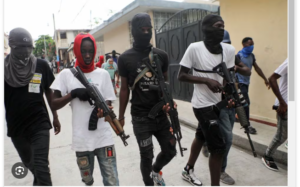
He described the current situation in the country as “very precarious”.
“The police force is weak, and more than 40 police stations [are] destroyed. The army is very limited and not equipped; gang members occupy most of the [Port-au-Prince] downtown and some government headquarters.
“Very soon people will be out of food, medication and… medical support.”
Mr Pierre said the gangs were now pushing to be part of any new power-sharing deal, adding that such a political settlement was impossible without the “support” of an international armed force.
Mr Henry had been in Kenya to sign a deal on the deployment of an international security force to help tackle violence when a coalition of gangs attacked police stations and stormed two of Haiti’s largest prisons.
A plane carrying Mr Henry was stopped from landing following sustained attacks at Haiti’s international airport.
Mr Henry’s resignation had been expected for several days. The Caricom group of Caribbean nations had made its position clear that he was seen as an impediment to Haiti’s stability and that he would have to stand down so the move to a transitional council could begin.
The White House had initially wanted to see Mr Henry return to Haiti to oversee the transitional process, but the ferocity of fighting in the country changed minds in Washington in recent days.
Without the support of either the US state department or his neighbours, it was clear that Mr Henry had no alternative but to stand down.
Mr Henry has expressed a wish to return to Haiti but the security situation has to improve before he is able to do so, according to the US which was at the talks in Kingston on Monday.
A senior US official said Mr Henry had first made the decision to step down on Friday but he had waited for an official announcement so talks could take place.
US Secretary of State Antony Blinken committed a further $100m (£78m) to the 1,000-strong UN-backed security force Kenya is expected to lead in Haiti.
The proposed US contribution to the security force now stands at $300m following Mr Blinken’s announcement, with a further $33m allocated for humanitarian aid.
However, the top civil servant in Kenya’s foreign affairs ministry has told the BBC that its deployment of police to Haiti has been put on hold following Mr Henry’s resignation.
Korir Sing’oei added that Kenya would wait for the installation of a new constitutional authority before further decisions were made.
Earlier, the chairman of the Caricom group and Guyana’s President Irfaan Ali said: “We acknowledge his resignation upon the establishment of a transitional presidential council and naming of an interim prime minister.”
President Ali said the transitional presidential council would have two observers and seven voting members, including representatives from several coalitions, the private sector and civil society, and one religious leader.
The council has been mandated to “swiftly” appoint an interim prime minister, he said, adding that anyone intending to run in Haiti’s next elections will not be able to participate.
It is hoped the council will pave the way for the first elections in Haiti since 2016.
Haiti: The basics
The Caribbean country shares a border with the Dominican Republic and has an estimated population of 11.5 million.
It has a land area of 27,800 sq km, which is slightly smaller than Belgium and about the same size as the US state of Maryland.
Chronic instability, dictatorships and natural disasters in recent decades have left Haiti the poorest nation in the Americas.
An earthquake in 2010 killed more than 200,000 people and caused extensive damage to infrastructure and the economy
A UN peacekeeping force was put in place in 2004 to help stabilise the country and only withdrew in 2017.
In July 2021, President Jovenel Moïse was assassinated by unidentified gunmen in Port-au-Prince. Amid political stalemate, the country continues to be wracked by unrest and gang violence.
Source: BBC

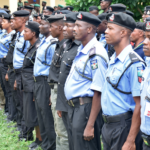



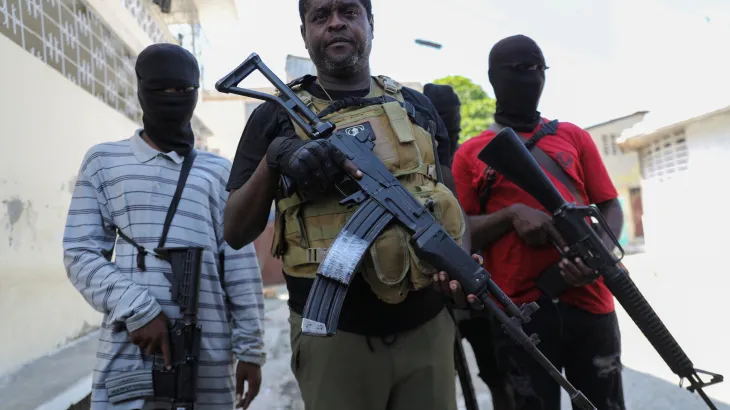
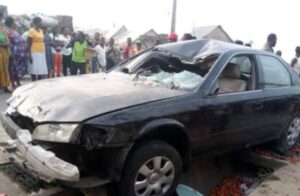
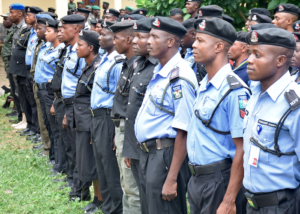
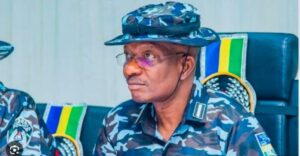

More Stories
Nigerian Army orders probe of driver who ran over soldiers in Lagos
PSC orders police officers above 60 years to proceed on retirement
Lawyer faults AGF Fayemi on tenure of IGP Egbetokun, argues only constitutional amendment can stop his retirement